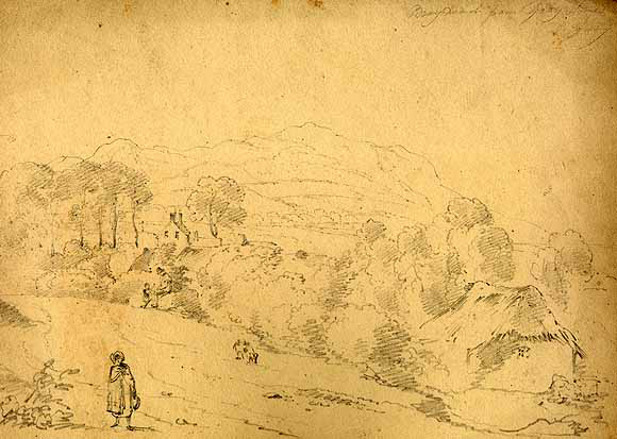Journal Volume 7 2013
Greystones and its environs: a personal view
The life and letters of William Urwick, D.D.,1870
Rev William Urwick (1791-1868) was minister of the York Street Congregational Chapel in Dublin from 1826 to 1866, a leading figure in the evangelical movement, an advocate of temperance and an anti-slavery campaigner. From the 1830s on, he spent his summers in Greystones with his family, travelling back into the city to take Sunday service and returning to Greystones on Monday. The local beauty spots, the pastimes and the outdoor preaching and hymn-singing described by Urwick would be familiar to successive generations of residents and visitors.
For the health of Mrs Urwick and the children, it became necessary to secure change of air and sea bathing, and accordingly, in the summer of 1830, lodgings were obtained in a fishing village, about two miles from Delgany, and fifteen miles from Dublin, called the Greystones. It was a lovely sequestered spot, consisting of a coastguard station, and about two dozen cottages, built out upon a flat promontory of rock, extending about half a mile along the coast, between Bray Head and Wicklow.

These rocks present abundant scope for studying geology, the strata being upturned and tossed about in extraordinary lines and curves, while nothing could be more delightful to the health and rest-seeker, than to go out and sit among them, basking in the sunshine, with the deep clear sea dancing at his feet. Many an hour did he spend with his children, sitting out upon the rocks reading as they played.
The cottage which they first occupied ... was called Dame Doyle’s cottage, Dame Doyle being the mother of a large family, and her sons being the foremost and most enterprising of the fishermen. The cottage was not large, and the contrivances for sleeping accommodation gave endless amusement. Immediately in front, looking northwards, lay the north shore, in the near corner of which “the coomb” was a natural harbour or basin, sheltered from all points but the N.E., which the fishermen chose as their place of launching and of landing; their boats, when at home, were drawn upon the strand.

